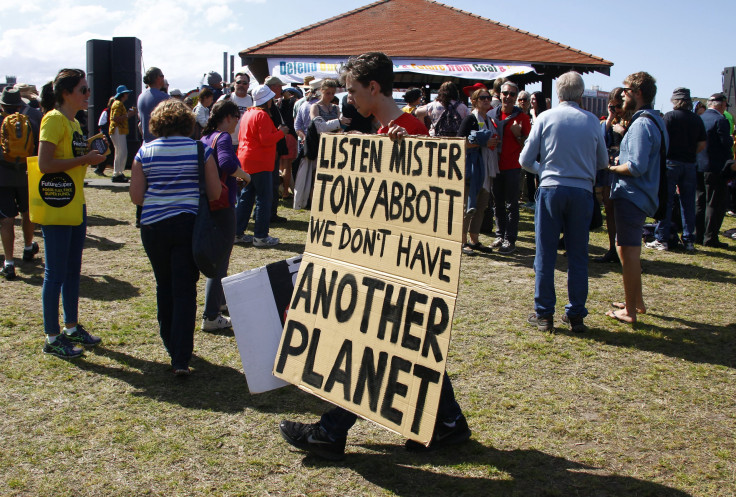Australia Defers Announcement Of Post-2020 Emissions Reduction Target

Australia will not release its post-2020 emissions reductions target before August, Prime Minister Tony Abbott said Monday. The reductions target -- considered vital in limiting the rise in global temperatures to 2 degrees Celsius (3.6 degrees Fahrenheit) below pre-industrial levels -- was to be announced later this month, according to media reports.
“Other countries make all these airy-fairy promises that never come to anything,” Abbott reportedly said, during a press conference, when asked about Australia’s likely target, adding that unlike these countries, “when we make commitments to reduce emissions we keep them.”
Australia, which has one of the highest per capita emissions of carbon dioxide and is the thirteenth-largest greenhouse gas emitter in the world, has faced criticism for failing to do enough to curb these emissions. According to a report released Monday by the Climate Council -- an Australian nonprofit -- the country needs to cut its emissions by between 40 percent and 60 percent from 2000 levels by 2030.
The Tony Abbott-led government’s current target is a 5 percent cut on 2000 levels by 2020. However, if the government announces a post-2020 emissions reduction target of 30 percent -- as recommended by various think tanks in the country -- it would put the country ahead of the U.S., which aims to reduce emissions by 26 percent to 28 percent by 2025.
“This government doesn't get enough credit, Australia doesn't get enough credit, for the emissions reduction work that we have already done,” Abbott reportedly said, adding that his government would announce a “very strong and credible” target before the crucial climate conference to be held in Paris at the end of this year.
Australia has warmed by nearly 1.8 degrees Fahrenheit over the last 100 years, making the country and its rich biodiversity increasingly vulnerable to the effects of climate change. Australia contains more than 5 percent of the world’s plants and animals, including 87 percent that are endemic -- several of which are now under threat from rising sea-levels and anthropogenic climate change.
“The eyes of the world are on Australia right now,” Tim Flannery, a climate activist and a scientist at the Climate Council, reportedly said Monday. “We risk becoming a pariah if we don’t join the rest of the world in doing our fair share to tackle climate change.”
© Copyright IBTimes 2024. All rights reserved.






















